Space
Sign up for our newsletter
We summarize the week's scientific breakthroughs every Thursday.
-
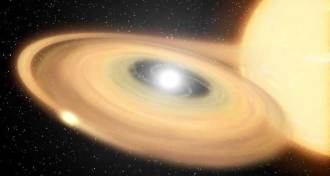 Astronomy
AstronomyStar that exploded in 1437 tracked to its current position
Astronomers have hunted down a star seen exploding in the year 1437 and traced it since, offering clues to the stages of a white dwarf.
-
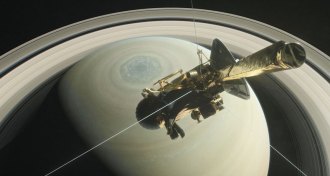 Planetary Science
Planetary Science‘Death Dive to Saturn’ celebrates the Cassini probe’s accomplishments
A new documentary, “Death Dive to Saturn,” takes a look back at the Cassini spacecraft’s 13 years at Saturn and what to expect from its final days.
-
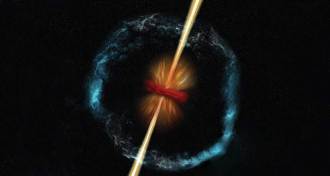 Astronomy
AstronomyRumors swirl that LIGO snagged gravitational waves from a neutron star collision
Telescopes seem to be following up on a potential gravitational wave sighting.
-
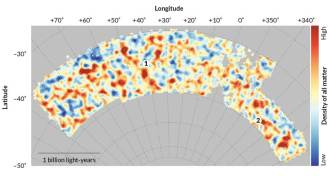 Cosmology
CosmologyMap reveals the invisible universe of dark matter
The Dark Energy Survey reports a new tally of the dark universe.
-
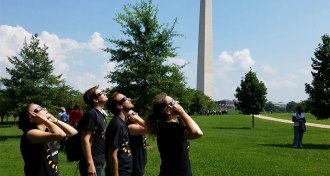 Astronomy
AstronomyHere’s what the Science News family did for the eclipse
On August 21, 2017, the path of a total solar eclipse went coast to coast across the United States. Here are our dispatches.
-
 Science & Society
Science & SocietyPatience is one virtue scientists must embrace
Acting Editor in Chief Elizabeth Quill discusses how being patient isn't always easy in scientific work.
-
 Astronomy
AstronomyInquiries about the moon’s twilight zone, and more reader feedback
Readers had questions about the moon's tidal locking, quantum communication, microneedles and more.
-
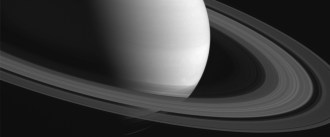 Astronomy
AstronomyAs Cassini’s tour of Saturn draws to a close, a look back at postcards from the probe
As Cassini prepares to plunge to its death, we celebrate the spacecraft's discoveries and breathtaking images of Saturn, its rings and moons.
-
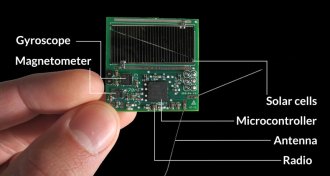 Astronomy
AstronomyThese chip-sized spacecraft are the smallest space probes yet
Space initiative dubbed Breakthrough Starshot sent the smallest spacecraft yet into orbit around Earth.
-
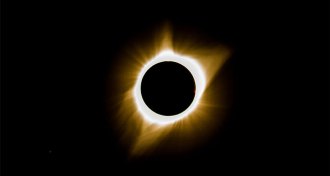 Astronomy
AstronomyOn a mountain in Wyoming, the eclipse brings wonder — and, hopefully, answers
Astronomy writer Lisa Grossman joined scientists on a mountain in Wyoming who were measuring the corona using four different instruments to try to figure out why it’s so hot.
-
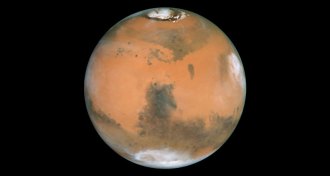 Planetary Science
Planetary ScienceMars has nighttime snow storms
When clouds of water-ice particles cool at night, snow starts to fall rapidly on Mars, simulations suggest. The squalls could explain observations made by the Phoenix lander in 2008.
-
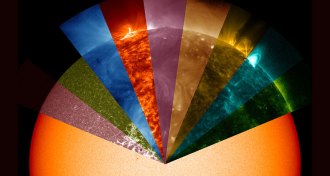 Astronomy
AstronomyEclipse watchers will go after the biggest solar mystery: Why is the corona so hot?
Usually when you move away from a heat source, it gets cooler. Not so in the sun’s atmosphere.